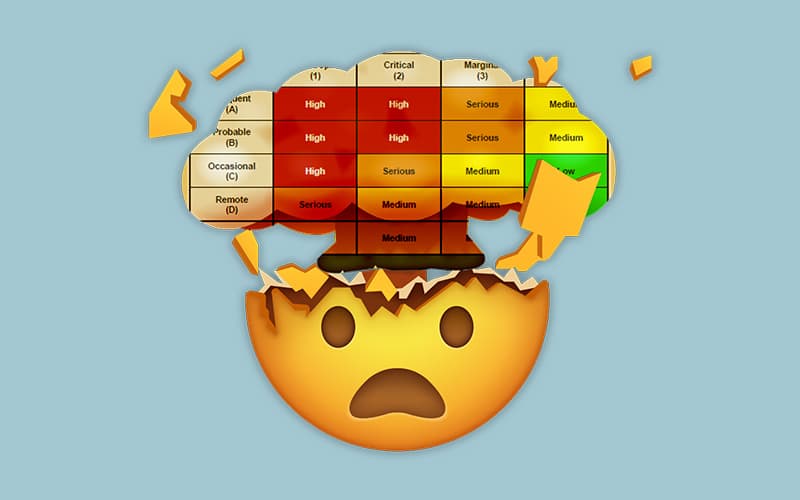With large organisations popping up all over the world, you may think that risk assessment processes are fairly new. But they’ve actually been used for thousands of years, dating back to Ancient Greece.
These ancient processes largely involved good old-fashioned storytelling. People would share experiences to develop a solid knowledge base that was constantly being refined and improved through feedback.
But one thing that’s relatively new, is finding ways to standardise and apply scientific approaches to risk assessment. From an organisational perspective, research has only pivoted towards a more ‘process’ driven method during the last 40 years or so.
There are broadly two disciplines towards risk assessment:
1) the older humanistic approach
2) the younger process-driven approach
Within these two disciplines are many different methodologies – but which should you use in your business?
Surely the newer, more scientific approach using large amounts of data is the better option, right? In short, not necessarily.
When making a decision about risk assessment methodologies, first it’s important to understand the difference between risk and uncertainty.
What’s the difference between risk and uncertainty methodologies?
Risk
Imagine you’re playing a game of roulette.
There are 37 possible outcomes when the ball is dropped into the roulette wheel, and you’re using probability estimates to decide on the likelihood of each of the betting options available providing you with a reward.
This is risk. You know every outcome possible, so it is a matter of likelihood and consequence.
Uncertainty
Imagine now that you are an offshore crane operator.
You’re about to lift a 40-tonne subsea manifold from a barge up to the semi-submersible drilling platform your crane is on.
Do you have every single outcome possible in front of you?
Of course not. This is a complicated activity with many sub-processes, outcomes that can lead to other potential outcomes, and dynamic variables that we can’t always predict.
This is uncertainty.
Risk assessment tools and methodologies that have been created and refined over the past 40 years are great at dealing with risk, or situations with very little uncertainty.
RELATED: What Makes a High Reliability Organisation (HRO)?
Should we rely on human expertise or data?
However, it’s important that we don’t rely on these processes and underestimate the level of uncertainty in situations. This can lead to something ‘left field’ happening, and incidents occurring.
Remember, something weird or unimaginable to you could be a known occurrence to someone else.
This is where the humanistic approach to risk and uncertainty surpasses data-driven processes, but unfortunately that has been largely beaten into the ground due to a pessimistic view of human capability and performance.
This then becomes a self-fulfilling prediction: humans are bad at making decisions in risk, so let’s remove the ability for them to make those decisions. This attitude further degrades their competency to make decisions, which leads to more errors, and ultimately the removal of more human decision-making opportunities.
Now, we’re not saying that the various risk assessment tools and methodologies available to us are pointless – not at all.
They provide structure and backbone to dealing with uncertainty and are critical for establishing procedures and guidelines for safe systems of work. However, they cannot substitute human expertise.
Psychologists such as Gary Klein have demonstrated the amazing situations where expert human intuition can make decisions under uncertainty faster and more effectively than any process – even one with exponentially more data to support it.
This means organisations need to harness both the process-driven and humanistic approaches to be at optimum performance.
It can be hard to navigate these waters. Supporting and empowering workers, accelerating expertise development, and driving innovation and continuous improvement while reducing errors and maintaining regulatory compliance is a challenge.
This is where we can help. If you need help with risk assessments and accelerating expertise within your organisation, please get in touch today.


